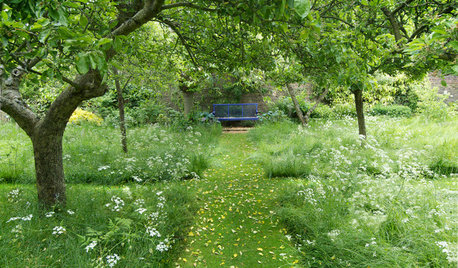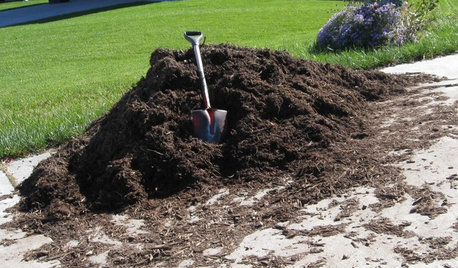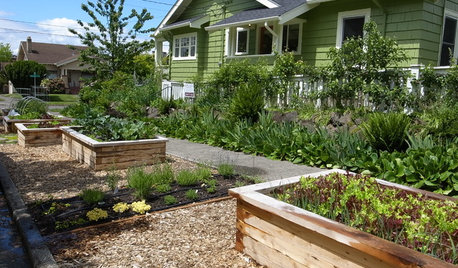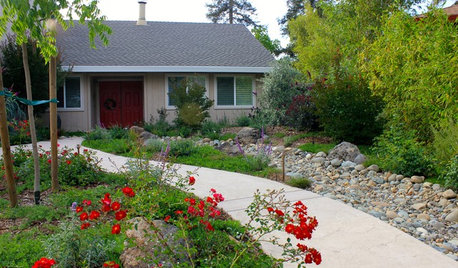Organic Green Lawns?
lovetotweet
16 years ago
Related Stories

FLOWERS AND PLANTSMyoporum Parvifolium a Lush Green Alternative to the Lawn
Plant this Australian native in mild-winter climates as a low-maintenance, semi-drought-tolerant ground cover
Full Story
LANDSCAPE DESIGN15 Great Ideas for a Lawn-Free Yard
End the turf war for good with hardscaping, native grasses and ground covers that save water and are easier to maintain
Full Story
GROUND COVERSGive Your Lawn a Taste of the Wild
Consider the joys of an irregularly trimmed meadow lawn: It’s ecofriendly, visually interesting and still good for romping
Full Story
SAVING WATERHouzz Call: Are You Letting Go of Your Lawn?
Many facing a drought are swapping turf for less thirsty plantings. If you’re one of them, we’d like to hear about it
Full Story
FRONT YARD IDEASBefore and After: Front Lawn to Prairie Garden
How they did it: Homeowners create a plan, stick to it and keep the neighbors (and wildlife) in mind
Full Story
GRASSESHow to Rock a Lawn
Weekend Project: The key to healthy grass begins with the soil. If turf works for you, here’s how to fix it and keep it looking its best
Full Story
BEFORE AND AFTERSSee 6 Yards Transformed by Losing Their Lawns
Wondering whether a turf lawn is the best use of your outdoor space? These homeowners did, and they found creative alternatives
Full Story
LANDSCAPE DESIGNCalifornia Says Goodbye to the Sprawling Ornamental Lawn
New state rules will effectively limit turfgrass to 25 percent of the landscape in most new and renovated yards
Full Story
EARTH DAYThe Case for Losing the Traditional Lawn
Work less, help the environment and foster connections by just saying no to typical turf
Full Story
GREAT HOME PROJECTSHow to Replace Your Lawn With a Garden
New project for a new year: Lose the turfgrass for energy savings, wildlife friendliness and lower maintenance
Full StoryMore Discussions






okcdan
lovetotweetOriginal Author
Related Professionals
Hershey Landscape Architects & Landscape Designers · Mountain Brook Landscape Architects & Landscape Designers · Duarte Landscape Contractors · Fort Wayne Landscape Contractors · Huntley Landscape Contractors · Melrose Landscape Contractors · Oakland Landscape Contractors · Oxnard Landscape Contractors · Petaluma Landscape Contractors · Tamarac Landscape Contractors · Tinton Falls Landscape Contractors · Cedar Falls Decks, Patios & Outdoor Enclosures · Crestline Decks, Patios & Outdoor Enclosures · New Lenox Decks, Patios & Outdoor Enclosures · Eustis Decks, Patios & Outdoor Enclosurestmelrose
lovetotweetOriginal Author
tmelrose
sheri_nwok
okcdan
Okiedawn OK Zone 7
sheri_nwok
Okiedawn OK Zone 7
sheri_nwok
Okiedawn OK Zone 7
lovetotweetOriginal Author
melissia
okcdan
ramcoach
melissia
okcdan
ramcoach
sheri_nwok
tmelrose